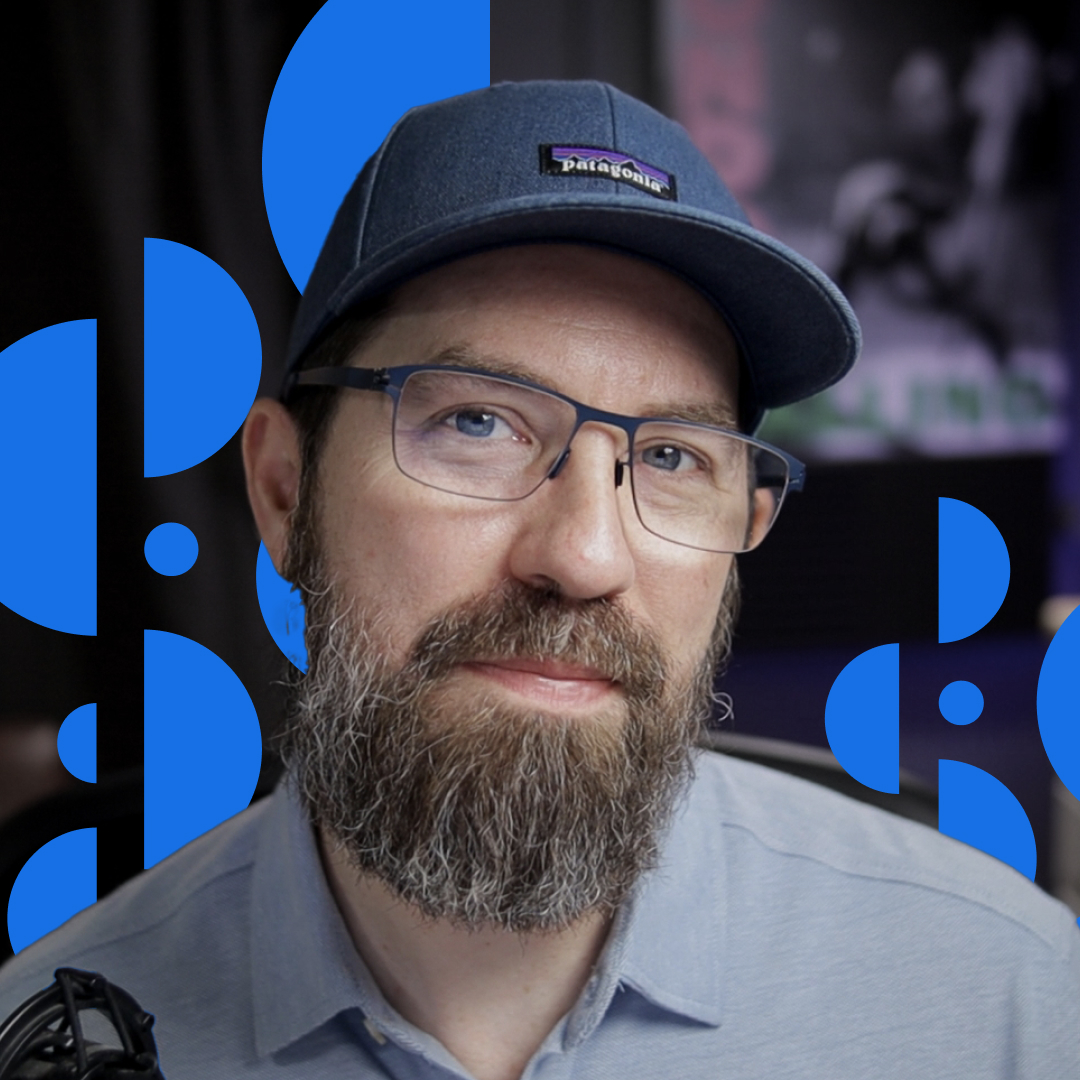
The Contentful SEO guide
Headless SEO explained




Joshua Lohr, Rob Remington, Nick Switzer, Allan White
Updated: May 7, 2024

The Contentful SEO guide
This is chapter 2 of the series, The Contentful SEO guide.
Summary
Is a headless content management system (CMS) SEO-friendly? What are the tradeoffs? What should we be aware of? If SEO is the process of improving the visibility of a site in organic search results to increase qualified traffic, you need your technology to be able to meet increasing demands — to adapt and scale beyond chasing those 10, first-page unpaid links, and compete in a space dominated by knowledge panels, maps and localized results, rich media results, and ever-expanding paid results. Let’s explore the ins and outs of Headless SEO.
What is a headless CMS?
Let’s pause for a moment to define what a headless CMS is. Headless content management systems separate a back-end content repository, the “body,” from the presentation layer, the “head.” This allows you to manage content in one place and deploy that content across any digital channel you choose, whether that be websites, mobile apps, digital signage, kiosks … you name it.
What is headless SEO?
Headless SEO is the process of optimizing your headless CMS website to enhance performance in organic search results. This involves implementing an approach with techniques to ensure that search engines can effectively crawl, index, and rank the content of a headless website.
And since a headless CMS centrally manages content and delivers it across a host of channels and screen sizes, headless SEO enables the optimization of your content no matter where or how it’s served. Headless SEO empowers digital teams to deliver your content efficiently and effectively to your audiences in organic search results.
Myths of headless SEO
The most common myth is that this separation of the back end and front end makes headless SEO more difficult than with monolithic systems. The reality is that this decoupling frees your content and empowers your digital teams. Monolithic CMSes, also known as traditional or legacy CMSes, make a lot of decisions for you, and at first this may feel comforting. As you scale, however, the constraints introduced by your CMS become ever tighter. With headless, your content creators can not only build the experiences they require, but also reuse their content across any digital experience. Your developers iterate quicker using the power of application programming interfaces (APIs) to build those experiences using best-of-need technologies.
Benefits of headless SEO
Here are a some examples of how a headless CMS benefits you from an SEO perspective:
1. Headless is everywhere
One of the greatest benefits of using a headless CMS for SEO is the ability to centrally manage content, particularly content that is used across multiple channels. With a headless CMS, you can update a piece of content in one place and deploy that update everywhere that the content is published. If you’ve ever found yourself having to manage the same piece of content across multiple pages or experiences, you will understand the pain this solves. You’ll never have to worry about discrepancies between content published on your mobile app vs. your website, or anywhere else for that matter.
2. Headless is flexible
Moving pages into any desired URL structure is simpler with headless, something monolithic CMSes often have significant challenges with, leading to a thorn in the side of many SEO practitioners. Want to change a URL structure to be more SEO-friendly, include keywords in the URL slugs, or just need to move a page in your monolithic CMS, only to decide it isn’t worth the hassle? Learn how Contentful makes this easier in this guide on managing redirects in a headless CMS.
3. Headless is scalable
Imagine you need to create tens or hundreds of new pages, all using a similar structure and content, while also allowing you to customize each page with unique elements to ensure you’re avoiding duplicate content. An example might be where you have dozens of brick-and-mortar locations and you need landing pages for each location in order to capture localized searches. By using a structured content model in a platform like Contentful, you’re able to predictably target the necessary components, whether they are shared across all content types or only specific ones, and speed up your time to delivery.
Additionally, our AI Content Generator can help accelerate your go-to-market time serving as a helping hand to create content elements, generate your SEO metadata, or even localize that content in about 100 languages. Learn more about our AI content generation abilities.
4. Headless is fast
Headless means your dev team can select the front-end frameworks that best serve your business goals and make decisions that provide the optimal user experience, rather than fighting the bloated templating engines that plague monolithic systems. Core Web Vitals measure user experience metrics based on factors rooted in performance which help influence your site’s page ranking. Contentful’s lightning-fast response times, dynamic image optimization, and global caching capabilities out-of-the-box mean Core Web Vitals won’t be keeping you up at night.
How is headless SEO different?
Headless SEO can feel different due to the nature of a headless CMS tech stack, however, this flexibility — as outlined in the benefits above — provides a great opportunity to configure any and all aspects of SEO however you like, without the constraints levied by a monolithic CMS.
SEO content modeling
With the decoupling of the back end and front end, your data is all stored in the back-end systems, typically brought to the front end by APIs. To serve the SEO metadata, schema, tags, and more to search engines, you will need to identify which elements and fields in the back end, and connect these so that they are displayed in the front end and will be interpreted by search engines in a way you want them to. This process is called SEO content modeling, which we’ll discuss in detail in the next chapter.
JavaScript rendering for SEO
Another facet of headless SEO that tends to differ from monolithic CMSes is JavaScript rendering. Since with a headless CMS the back end is decoupled from the presentation layer, or the front end, how the content is served and rendered between the two becomes increasingly important as this is how search engines access and index the content.
There’s no shortage of information regarding JavaScript rendering for SEO out there, including this good, yet complicated guidance from Google itself. Let’s try and simplify some of this the best we can, starting with the worst JS config for SEO first and make our way to the most ideal.
1. Dynamic rendering
Dynamic rendering is the process of detecting users and bots (search engine spiders) to serve humans a client-side rendered version of the content and deliver a server-side rendered version without JavaScript to the bots. It was initially considered a workaround option by Google, until more recently where they now recommend against using it, likely spurred by cloaking risks and abuse. Best to avoid at all costs.
2. Client-side rendering
Client-side rendering (CSR) is where all aspects of rendering is handled and processed by the client rather than the server. This means that all rendering happens in the browser, which is problematic for search engines since it requires their computing power rather than the server’s to load a page and process content. Since this processing will cost the search engine coin in terms of computing power, this could mean that Google may cut as many corners as possible when encountering CSR to cut costs. Regardless, CSR is not as bad as it’s made out to be in some SEO circles and following best practices outlined below will ensure your content is properly indexed by search engines.
3. Server-side rendering
Server-side rendering (SSR) is of course the opposite of CSR where the rendering of a page occurs on the server before sending it to the client's browser. In the SEO industry, you’ll often hear that server-side rendering is best for SEO. However, websites strictly using server-side rendering are much less common than they used to be and have their own pitfalls such as inflexibility and slow server response times.
4. Hybrid rendering
Hybrid rendering combines both CSR and SSR techniques, where the initial page loads are rendered on the server and subsequent interactions and updates are handled on the client-side. This approach aims to leverage the strengths of both SSR and CSR, offering improved performance and user experience by balancing server-side efficiency with dynamic client-side interactions while often integrating static rendering and prerendering techniques to further improve delivery. Hybrid rendering balances the tradeoffs between performance and flexibility, and ultimately is the most ideal for serving content to users and search engines alike.
Whatever rendering configuration you choose, it’s critical to ensure content is served in a way that is easy for search engines to understand and index. Be sure to serve the elements you deem essential to your page in the initial HTML layer to search engines to ensure this content is properly indexed and earns its full weight for ranking purposes. Avoid injecting any critical elements through JavaScript as this can confuse search engines if there’s any difference in the rendered and non-rendered versions.
What about SEO plugins?
While Contentful doesn't use plugins, Contentful Apps are like plugins — but far more powerful — extending and expanding the capabilities of the Contentful web app. Beyond our AI Content Generator highlighted above, there are dozens of apps in our Marketplace that can help level up and streamline your SEO efforts. Here are a few favorites:
-
The Surfer SEO app is one of the most exciting. It allows you to simultaneously optimize your content while writing through real-time optimization feedback by providing keyword usage suggestions, outline and heading recommendations, and image and word count thresholds –– all through competitive search result analysis.
-
While you can use the Writer App to provide AI-powered writing recommendations –– such as spelling, grammar, and punctuation suggestions –– you can also use the Writer AI Content Detector to help evaluate how well your content reads like a human wrote it.
-
The Google Analytics 4 app allows you to see your content’s performance metrics directly in the sidebar of your Contentful entries. There’s even the ability to link directly to GA4 reports to dive deeper into a page’s performance.
Up next
Let’s take a look at content modeling next, since it will be your foundation for SEO success.
Written by

Joshua Lohr
Senior SEO Manager
Josh is the SEO Lead at Contentful. With 15 years of experience working directly in SEO for global brands and agencies, he gets his kicks playing a variety of instruments and appreciating the nature of his adopted home in Scotland.

Rob Remington
Practice Architect
Rob Remington is a Practice Architect at Contentful, where he collaborates across all areas of the company to develop our recommended ways of building with Contentful, and ensure our technical teams have the resources they need to help our customers succeed.

Nick Switzer
Senior Solution Engineer
Nick is a technical people-person who lives for solving business problems with technology. He is a solution engineer at Contentful with 14 years of experience in the CMS space and a background in enterprise web development.

Allan White
Senior Solution Strategist
Allan White is a Solution Strategist at Contentful, with decades of experience in technical sales, design, web development, and video. A former Contentful customer, he brings these disciplines together in a unique approach to sales engineering, helping field teams tell better stories through presentations, video, and code — helping hundreds of brands navigate their Contentful journey.
